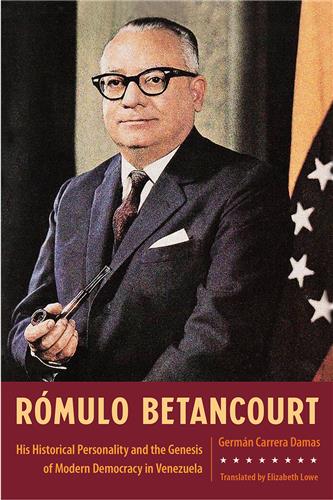The Cuban Revolution and the New Left
Transnational Histories of Gender, Sexuality, and Family
Edited by Michelle Chase and Isabella Cosse
Hardcover: $110.00
Paper: $35.00
Paper: $35.00
Available for pre-order. This book will be available January, 2026
Understanding overlooked dimensions of the Cuban Revolution and its impact on the global left in the 1960s and beyond
“A creative and compelling sociocultural history. The volume foregrounds gender, sexuality, family, and daily life to intervene in global Cold War studies and showcase the significance of South-South relations to the construction of the revolution as practice and symbol.”—Rachel Hynson, author of Laboring for the State: Women, Family, and Work in Revolutionary Cuba, 1959–1971
“This fascinating volume tackles a classic question: How did conservative elements of revolutionary Cuba’s domestic cultural policy coexist with its status as a symbol of hope for radical left-wing movements internationally? Its answers bring new life to the matter as well as much-needed visibility to the human elements of politics across the Global South.”—Jesse Horst, Sarah Lawrence College
This volume reconsiders revolutionary Cuba’s global influence by shifting the focus from high-level political leaders to perspectives traditionally sidelined, offering new insights into how everyday lives, family dynamics, and notions of gender and sexuality impacted revolutionary transformation. Its expansive scope uncovers ties between Cuba and Latin America, the United States, Africa, and Asia, examining the interplay of global forces including new models of mass consumption, feminist and LGBTQ+ movements, and national liberation struggles.
Chapters include analyses of Chinese reinterpretations of a Cuban play, Angela Davis’s influential visits to the island, Cuba’s complex relations with Black militants in Angola, and a Mexican transgender and disability activist who reimagined Che Guevara’s legacy. They also present research on Cuba’s solidarity campaigns with Vietnam, foreign journalists who covered the revolution, the role of consumption and fashion, and the lasting impact of the revolution’s refugee policies on exiled children and families from the Southern Cone.
Through its interdisciplinary sociocultural approach, this volume challenges conventional top-down narratives by foregrounding the interplay between grassroots actors and transnational affairs. It is an essential resource for scholars, students, and anyone interested in the multilayered stages of the Cuban Revolution and its continued relationship with global politics and culture.
Michelle Chase, associate professor of history at Pace University, is the author of Revolution within the Revolution: Women and Gender Politics in Cuba, 1952–1962. Isabella Cosse, professor of history at Universidad Nacional de San Martín and researcher at Consejo Nacional de Investigaciones Científicas y Técnicas (CONICET), is the author of Mafalda: A Social and Political History of Latin America's Global Comic.
A volume in the series Caribbean Crossroads: Race, Identity, and Freedom Struggles, edited by Lillian Guerra, Devyn Spence Benson, April Mayes, and Solsiree del Moral
Publication of this work made possible by a Sustaining the Humanities through the American Rescue Plan grant from the National Endowment for the Humanities.
Contributors: Tanya Harmer | Emily Snyder | Felipe Cesar Camilo Caro Romero | Ailynn Torres Santana | Robert Franco | Michelle Chase | Isabella Cosse | Siwei Wang | Ximena Espeche | Sarah J. Seidman | Rafael Cesar | Alexis Baldacci
No Sample Chapter Available
There are currently no reviews available












